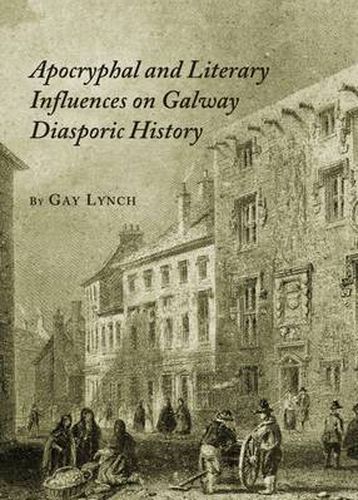Readings Newsletter
Become a Readings Member to make your shopping experience even easier.
Sign in or sign up for free!
You’re not far away from qualifying for FREE standard shipping within Australia
You’ve qualified for FREE standard shipping within Australia
The cart is loading…






Apocryphal and Literary Influences on Galway Diasporic History establishes that apocryphal stories, in all their transformations, contribute to collective memory. Common characteristics frame their analysis: irreducible and enduring elements, often embedded in archetypal drama; lack of historical verification; establishment in collective memory; revivals after periods of dormancy; subjection to political and economic manipulation; implicit speculation; and literary transformations.This book contextualises Unsettled, an Australian novel about a convict play, derived from the Irish apocryphal story of The Magistrate of Galway, and documents previously unpublished primary material, including apocryphal stories passed through generations of descendents of settlers, Martin and Maria Lynch, and The Hibernian Father, a play by Irish convict, Edward Geoghegan.It puts forward new hypotheses: that the Irish hero Cuchulain may have provided a template for the archetypal and apocryphal story of the Magistrate of Galway; that disgraced Trinity College medical student and aspiring writer, Edward Geoghegan, enacted and recounted the same father-son archetypal conflict when he was transported to Botany Bay in 1839, and wrote the The Hibernian Father based on the Magistrate of Galway; that working-class Irish families were marginalised in South-east South Australian historical records; that oral apocryphal Lynch stories may be true; that Kate Grenville’s The Secret River (2006) offers an alternative history of the Hawkesbury River settlement, by some definitions apocryphal. The mystery of Geoghegan’s disappearance is solved, and knowledge about his life increased. French theorist Gerard Genette’s notion, advanced in Palimpsests: Literature in the Second Degree (1997), of all novels being transtextual, provides a model for the analysis of relationships between these key apocryphal texts.
$9.00 standard shipping within Australia
FREE standard shipping within Australia for orders over $100.00
Express & International shipping calculated at checkout
Apocryphal and Literary Influences on Galway Diasporic History establishes that apocryphal stories, in all their transformations, contribute to collective memory. Common characteristics frame their analysis: irreducible and enduring elements, often embedded in archetypal drama; lack of historical verification; establishment in collective memory; revivals after periods of dormancy; subjection to political and economic manipulation; implicit speculation; and literary transformations.This book contextualises Unsettled, an Australian novel about a convict play, derived from the Irish apocryphal story of The Magistrate of Galway, and documents previously unpublished primary material, including apocryphal stories passed through generations of descendents of settlers, Martin and Maria Lynch, and The Hibernian Father, a play by Irish convict, Edward Geoghegan.It puts forward new hypotheses: that the Irish hero Cuchulain may have provided a template for the archetypal and apocryphal story of the Magistrate of Galway; that disgraced Trinity College medical student and aspiring writer, Edward Geoghegan, enacted and recounted the same father-son archetypal conflict when he was transported to Botany Bay in 1839, and wrote the The Hibernian Father based on the Magistrate of Galway; that working-class Irish families were marginalised in South-east South Australian historical records; that oral apocryphal Lynch stories may be true; that Kate Grenville’s The Secret River (2006) offers an alternative history of the Hawkesbury River settlement, by some definitions apocryphal. The mystery of Geoghegan’s disappearance is solved, and knowledge about his life increased. French theorist Gerard Genette’s notion, advanced in Palimpsests: Literature in the Second Degree (1997), of all novels being transtextual, provides a model for the analysis of relationships between these key apocryphal texts.